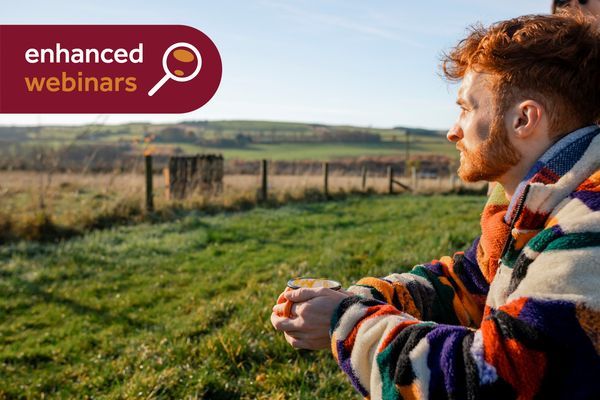Fresh air, being outdoors, and connecting with nature really is good for our physical and mental health.
Studies have found that mental health and wellbeing increases when we connect and engage with the larger world, outside of ourselves.
Connecting with the outside world helps us to focus on something beyond our own needs, worries, regrets, or future. This can make us feel calmer, or offer clarity on a problem we’re facing.
what are the benefits of being outdoors?
Spending time in nature gives us an opportunity to become part of something bigger than ourselves.
Whether that’s growing food, exercising, gardening, or walking in the countryside, being in natural surroundings or green spaces can have many positive effects on our mental health and wellbeing including:
- improving our mood
- reducing stress hormones
- gaining a sense of peace
- improving concentration
- boosting our immune system
- improving circulation
- psychological restoration
- aiding relaxation and sleep
- improving confidence and self esteem
why nature has a positive effect on our wellbeing
We don’t fully understand why nature has such a positive impact on our wellbeing.
But it’s thought to be related to how our senses connect us to the environment around us, from the shapes we see in nature, to the smell of the trees, to the curiosity that nature stimulates. All these things help our minds slow down and rest.
Many of us live in fast-paced urban areas which can be a source of sensory overload for our minds and bodies.
When we’re stressed, our bodies produce the stress hormone cortisol. While short-term bursts of cortisol can be beneficial, long-term exposure to stress can make cortisol stick around, leading to negative health consequences such as high blood pressure.
Time in nature can reduce our cortisol levels, and therefore improve our mental and physical health.
finding space to process our emotions
The peace of the natural world provides us with the mental space to breathe; the opportunity to hear our thoughts, and helps us process what we feel.
Being physically immersed in nature can direct our attention back to the body and lessen the mental chatter of the mind. We may find our creativity and enjoyment of life improves.
The last couple of years has blurred the lines between home and work life for many of us, making it feel like we have fewer opportunities to do activities we enjoy.
Screen time has gone up, with most of our interactions happening in front of a computer, phone, or tablet.
While this has kept us connected, it’s also caused many of us to feel overtaxed, overstimulated, and unable to decompress from sensory overload.
Nature provides an environment to calm our minds. It provides us with a sense of restoration and reconnection to the natural flow of life.
prioritise getting outdoors
Going for a daily walk, breathing fresh air, and feeling the sunshine or wind on your face may give you some mental space and a different perspective from which to view your most pressing concerns. You may find the solution is simple, or what was worrying you isn’t so important after all.
The combination of being outdoors, physical activity, and shared interactions with others can ease us back into the joys of life – and the pleasure we gain from being in the company of our loved ones.




